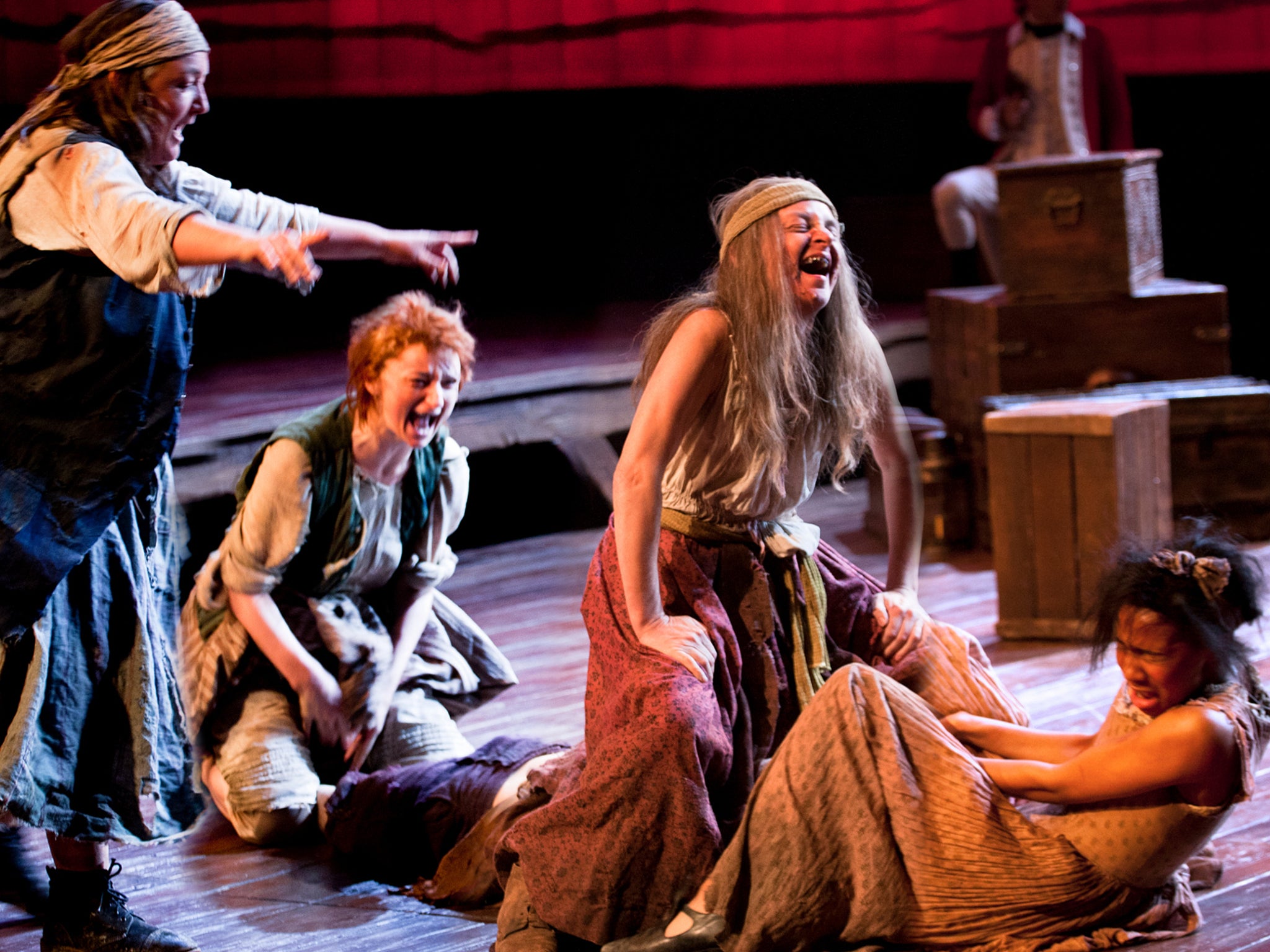Our Country's Good, Olivier, National Theatre, review: Overwhelmingly successful production
Brings to vivid life the earthy, scabrous humour amongst convicts in Australia
I can't think of many plays that would more overtly vindicate the National Theatre's Travelex scheme. 500 tickets at £15 are available for each performance of Nadia Fall's vibrant Olivier revival of this Timberlake Wertenbaker classic, first seen at the Royal Court in 1988. Adapted from a novel by Thomas Keneally, the drama tells the story of a civilising experiment – acrimoniously contested – whereby, to celebrate the King's birthday in 1789, transported convicts were allowed to rehearse and perform in a production of Farquhar's The Recruiting Officer, which thus became the first play ever to be staged in the penal colony of Australia.
It's a play about the humanising and transformative power of theatre and it has become a much-loved staple of the A-Level syllabus. It would be a preposterous contradiction in terms to price such a work beyond the means of the youthful spirits on which it might have the biggest and most life-changing impact. Hence the very pleasing congruence between the play's message and the NT's enlightened ticketing policy.
There are losses as well as gains, though, in presenting the play on such a large scale. Peter McKintosh's set gives a wonderful sense of the dauntingly vast vistas of this new land with its beautiful backdrop of striations in blue, grey-brown and red that are suggestive of aboriginal art, while the mighty Olivier revolve rears up to reveal beneath the cramped, barbaric conditions of the transportation ships.

In the wholly understandable desire to fill this epic stage with energy, the production has dropped the idea of pointed hierarchy-debunking doubling, with the same actors playing both the oppressors and oppressed, convicts and jailors – the switch denoted by a simple synecdoche of costume. It's a shame that this feature – integral to play's questioning of theatrical and social conventions – has had to go. Again, for my taste, the addition of songs by Cerys Matthews, which tap into several cultural traditions of music about migration and dispossession, risks skirting a sentimentality that Wertenbaker's text eschews.
And yet the production is overwhelmingly successful. It brings to vivid, splendidly orchestrated life the earthy, scabrous humour amongst the convicts; the brutality of their treatment; and the fractiousness of the naval officers living on their nerves at the other side of the world. The rehearsals of the Farquhar are wonderfully funny (and touching) as the prisoners try to wrap their mind round unfamiliar codes and class assumptions. An heiress worth twelve hundred pounds a year? “Twelve hundred pounds! It must be a comedy,” exclaims Dabby Bryant, whose unimpressed commentary and whose pining for Devon are given a Shakespearean tragicomic heft by Ashley McGuire.
Also outstanding is Jodie McNee's Liz Morden; her transition from a near-feral Scouse scarecrow to a kind of contained dignity is completely persuasive. But then this is a company without a weak link. I was impressed that in a play where racialism is one of the issues (Gary Wood is highly arresting as the Aborigine who stalks the action), the production furthers the NT's policy of colour-blind casting. Strongly recommended.
To 17 October: 020 7452 3000
Join our commenting forum
Join thought-provoking conversations, follow other Independent readers and see their replies
Comments